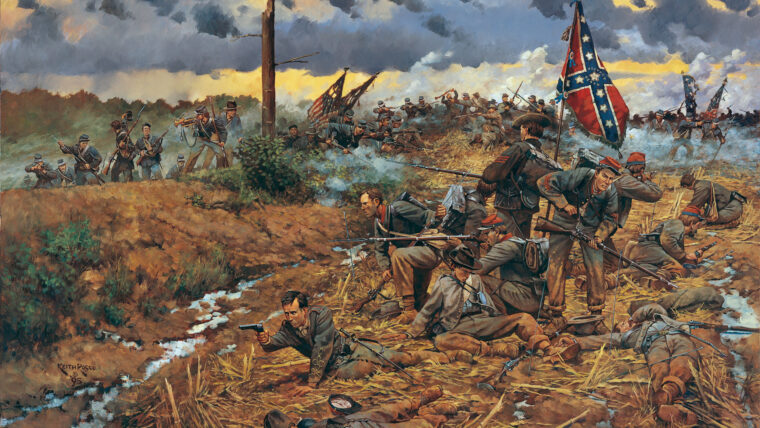
Ulysses S. Grant
Black Thursday at Sayler’s Creek
By David A. NorrisFour hundred Confederate sailors and marines, their small arms loaded and ready, awaited their orders. Some men had their cutlasses within easy reach. Read more

General Ulysses S. Grant was commander of all U.S. Army forces in the field during the American Civil War from the spring of 1864 until the conclusion of the conflict. He was appointed to command after successes in the Western Theater and accepted the surrender of Robert E. Lee’s Confederate Army of Northern Virginia at Appomattox on April 9, 1865. Ulysses S. Grant spent most of his time as overall commander in the field with General George Meade’s Union Army of the Potomac. After the war, Grant was elected to two terms as President of the United States. Ulysses S. Grant died in 1885 at the age of 63.

Ulysses S. Grant
Four hundred Confederate sailors and marines, their small arms loaded and ready, awaited their orders. Some men had their cutlasses within easy reach. Read more
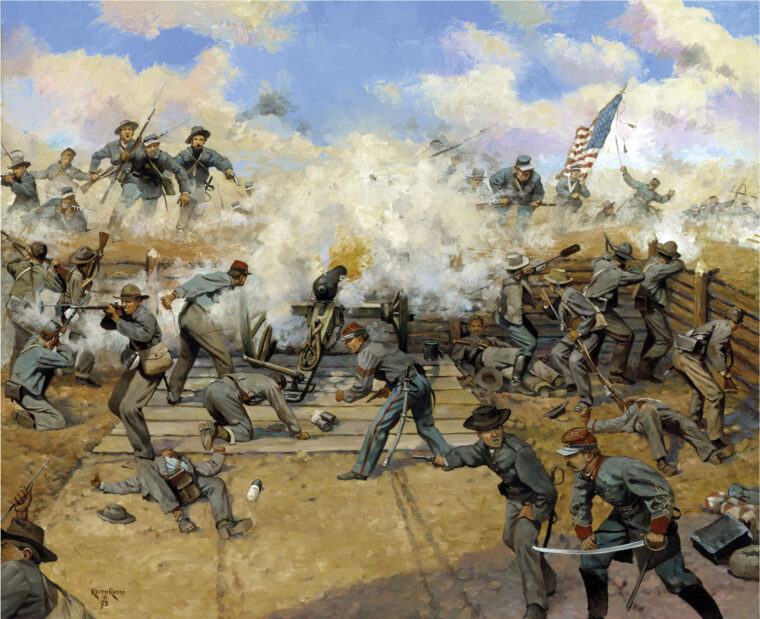
Ulysses S. Grant
Lieutenant Colonel Horace Porter, personal aide to Lt. Gen. Ulysses S. Grant, maneuvered his mount past ammunition wagons, ambulances, stragglers, and prisoners jamming the muddy roads leading back to headquarters from Five Forks, Virginia, on the evening of April 1, 1865. Read more
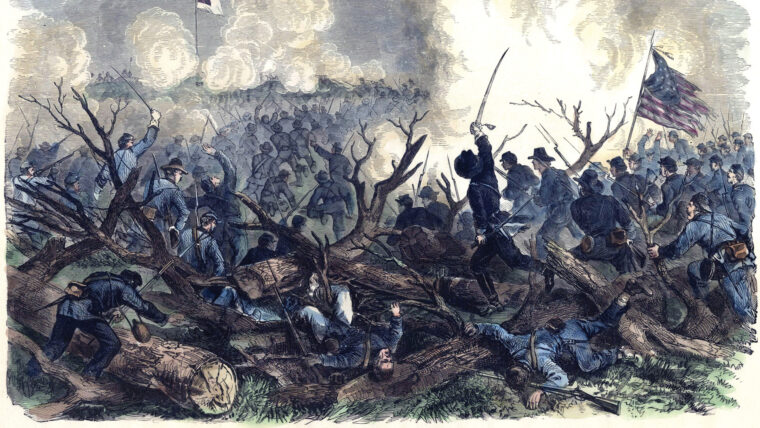
Ulysses S. Grant
Nathaniel Banks was a political creature, and with his country in the throes of civil war, he now held the politically obtained rank of major general in the Union Army. Read more
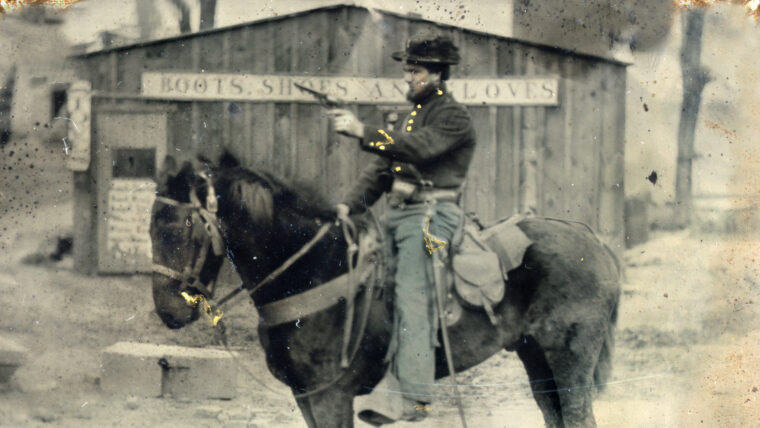
Ulysses S. Grant
Union Colonel Benjamin Grierson stuck his left foot into the stirrup and swung up into the saddle. Orders were quickly given, and soon a column of 1,700 blue-jacketed troopers of Grierson’s 1st Brigade, along with a battery of artillery, trampled southeast from La Grange, Tennessee, in the early dawn of April 17, 1863. Read more
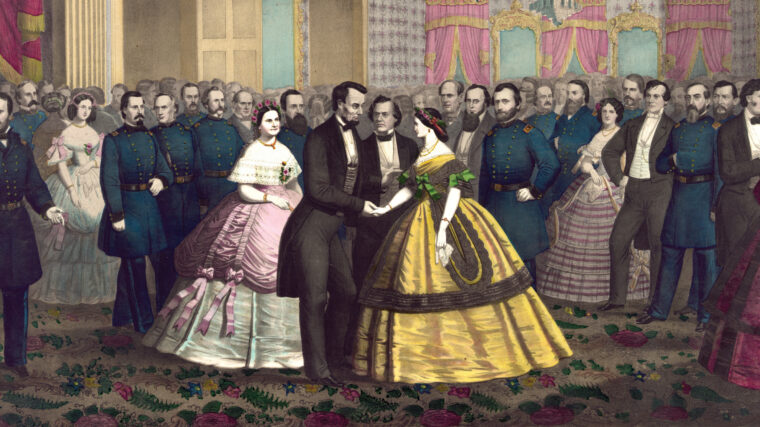
Ulysses S. Grant
On March 8, 1864, a rainy Tuesday, President and Mrs. Lincoln held a reception at the White House in Washington. Read more
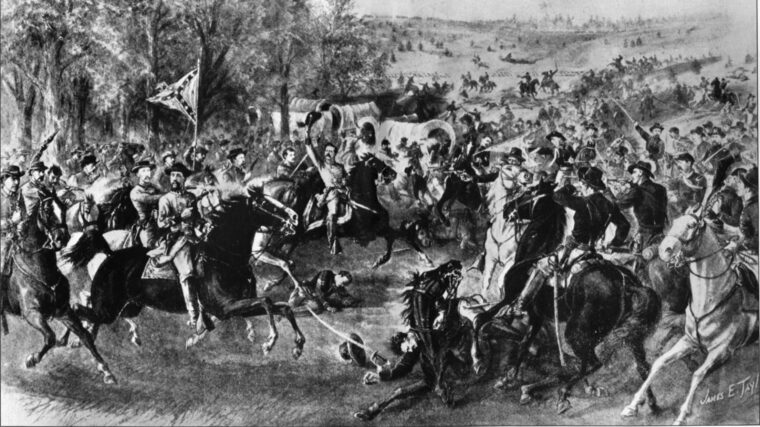
Ulysses S. Grant
Despite costing the Union Army 55,000 men in five weeks of hard marching and grueling combat, Lt. Gen. Read more
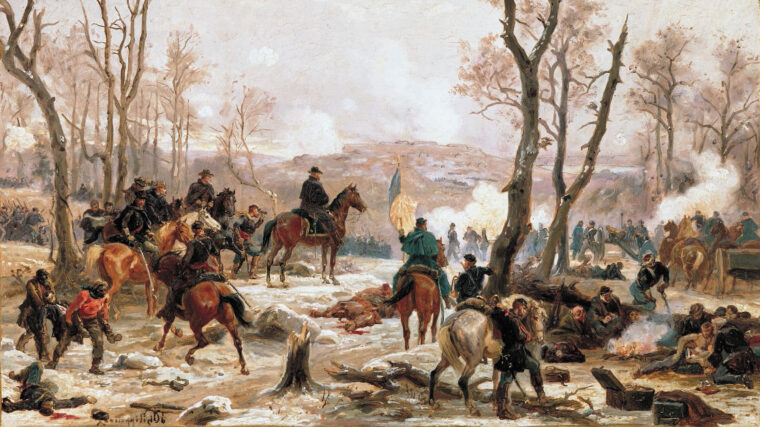
Ulysses S. Grant
One evening around Christmas of 1861 Union Maj. Gen. Henry “Old Brains” Halleck, commanding the Department of Missouri, dined with his chief of staff, Brig. Read more
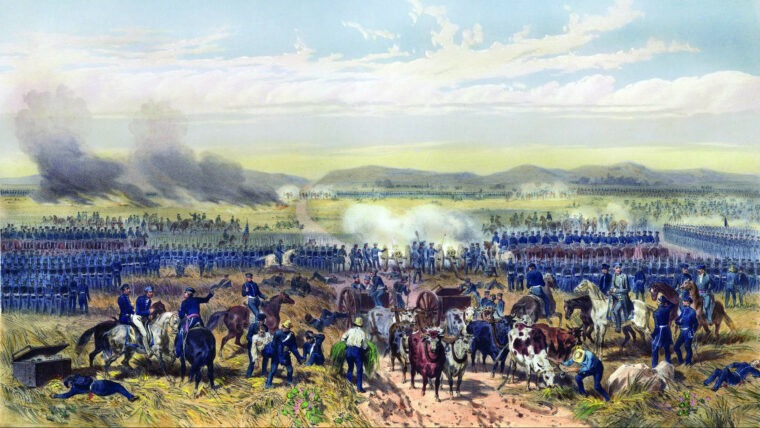
Ulysses S. Grant
The hot days at Fort Texas were about to get a lot hotter. For days, the men of the 7th U.S. Read more
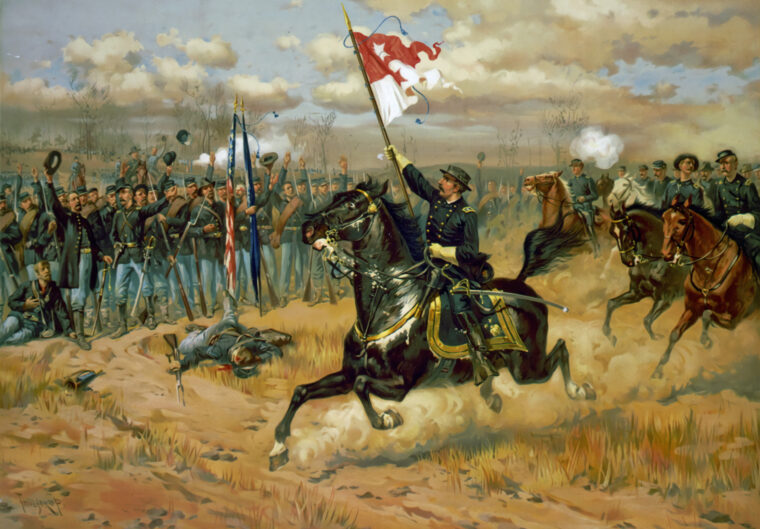
Ulysses S. Grant
The continued presence of a handpicked French puppet emperor in Mexico, which had so worried the Lincoln administration during the Civil War, remained a sore point with American political and military leaders after the Union victory in 1865. Read more
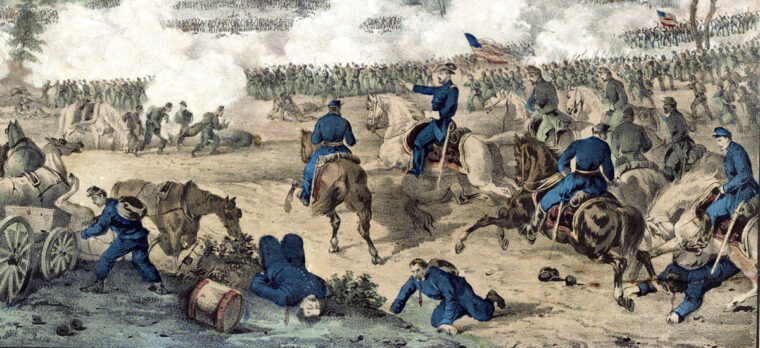
Ulysses S. Grant
The year 1864 was shaping up to be a critical one in the three-year-long Civil War. During the previous year, Federal armies had gained control of the Mississippi River and consolidated their grip on Tennessee. Read more
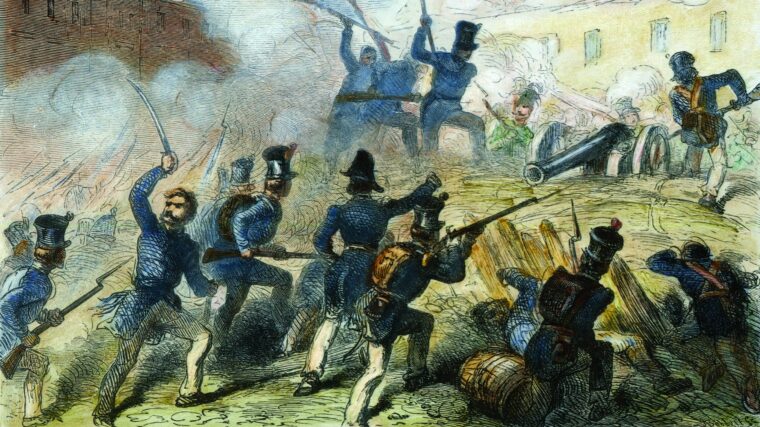
Ulysses S. Grant
On the morning of September 19, 1846, General Zachary Taylor and his advance party could see little through the mist that shrouded the city of Monterrey, Mexico, Taylor’s next objective in his ongoing northern campaign. Read more
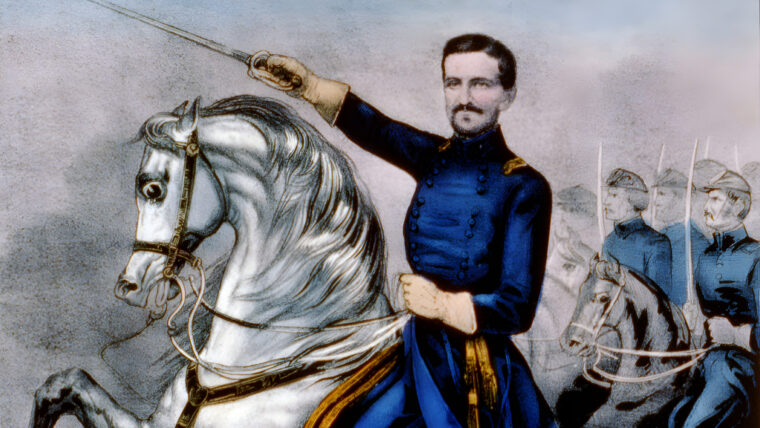
Ulysses S. Grant
Even more than most people, Union general William Rosecrans was often his own worst enemy. Hot-tempered, emotional, and frequently given to speaking—or shouting—before he thought, the Ohio-born commander of the Army of the Cumberland made enemies easily, even if he usually forgot in an instant what had made him angry in the first place. Read more
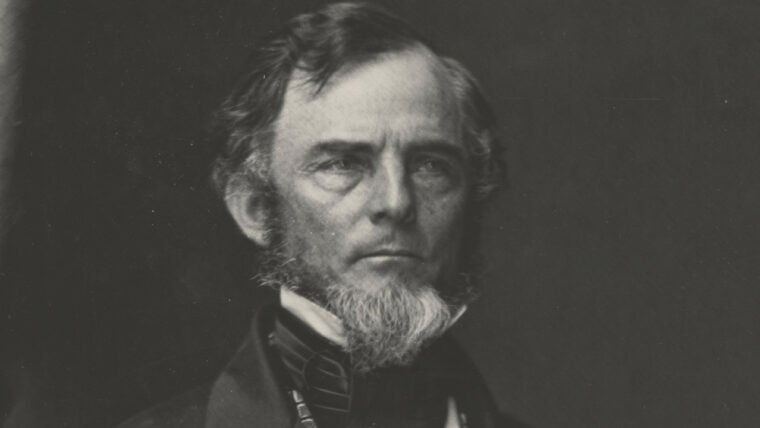
Ulysses S. Grant
Few Mexican War generals fought more battles than Tennessee-born Gideon Pillow—the problem was that many of those battles were with his own superiors. Read more
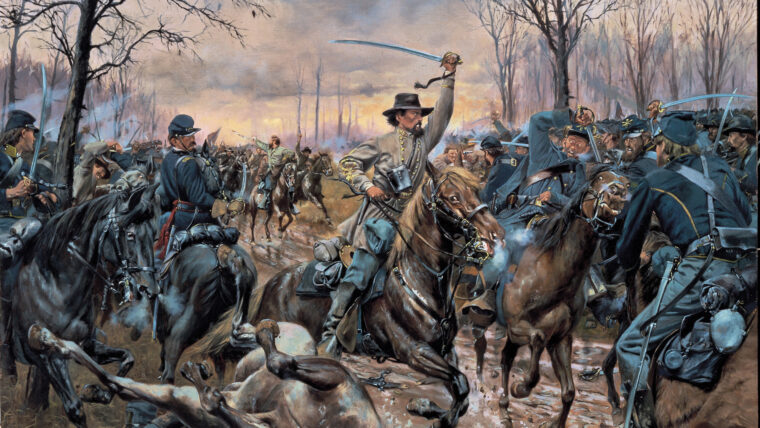
Ulysses S. Grant
With the fall of Vicksburg in the first week of July 1863, the strongest remaining Confederate presence in Mississippi was a recently thrown together force of 26,000 soldiers under General Joseph E. Read more
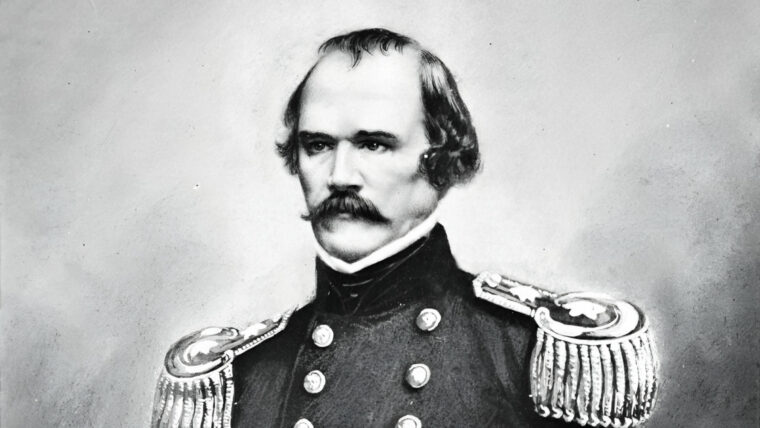
Ulysses S. Grant
Confederate President Jefferson Davis considered his old West Point classmate Albert Sidney Johnston “the greatest soldier, the ablest man, civil or military, Confederate or Union, then living,” and it is safe to say that no other general in either army began the Civil War with a more glittering—or fleeting—reputation. Read more
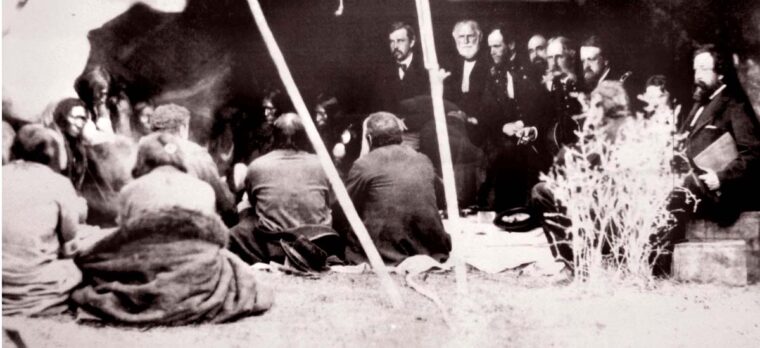
Ulysses S. Grant
Union General William T. Sherman, not the easiest man to please, always held Colonel Benjamin Grierson in high regard. Read more
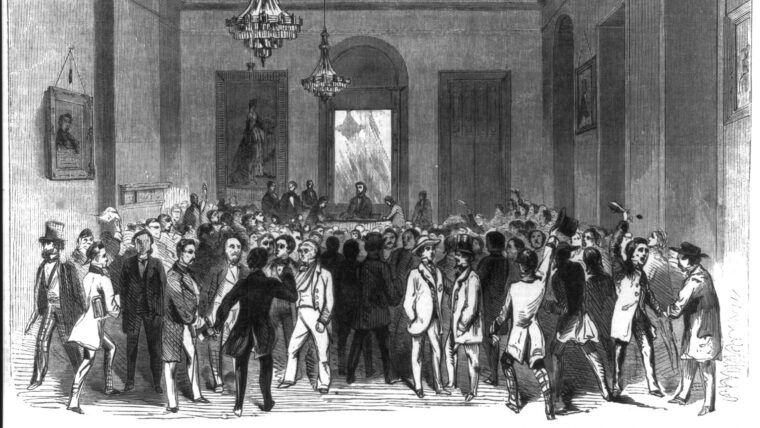
Ulysses S. Grant
“Every war will astonish you,” American general Dwight D. Eisenhower said after World War II. As the leader of the Allied forces that successfully landed on D-Day and marched into Berlin 11 months later, Eisenhower obviously knew what he was talking about. Read more
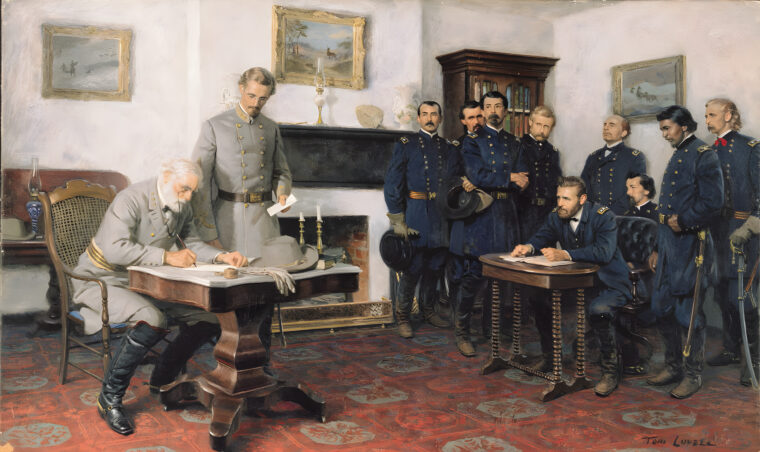
Ulysses S. Grant
Horace Porter was born April 15, 1837 in Huntingdon, Pa. He traced his ancestry and family motto, “Vigilantia et virtute,” to William De La Grange, who accompanied William the Conqueror to England in 1066. Read more
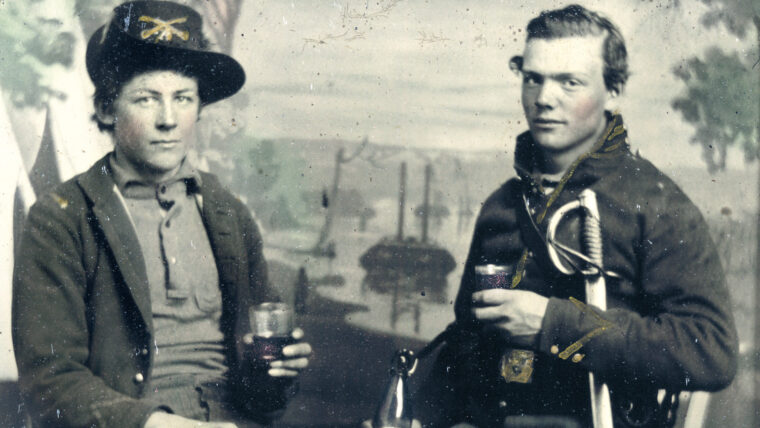
Ulysses S. Grant
Union General Benjamin Butler was baffled. Every night a picket guard went to an outpost 1½ miles from Fort Monroe, Virginia. Read more
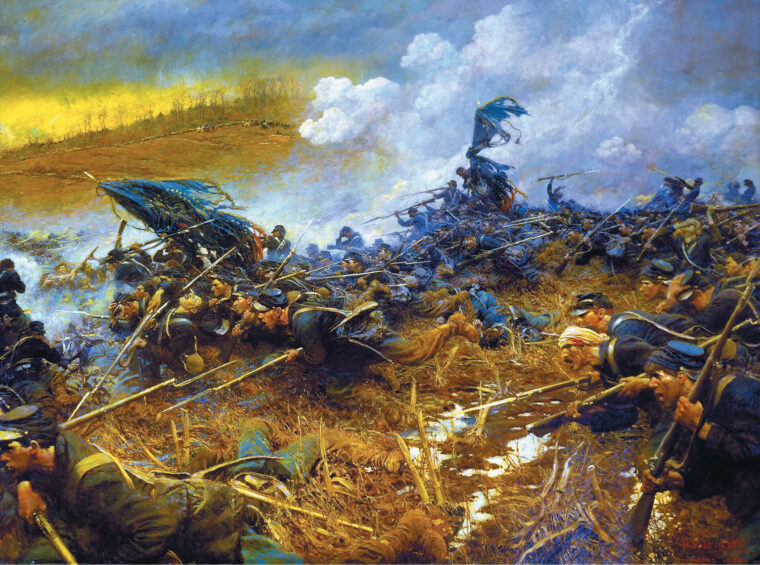
Ulysses S. Grant
For the black-skinned, blue-clad soldiers deployed on the extreme left flank of the Union Army outside Nashville, Tennessee, the order to advance announced at dawn on December 15, 1864, was a long time coming. Read more